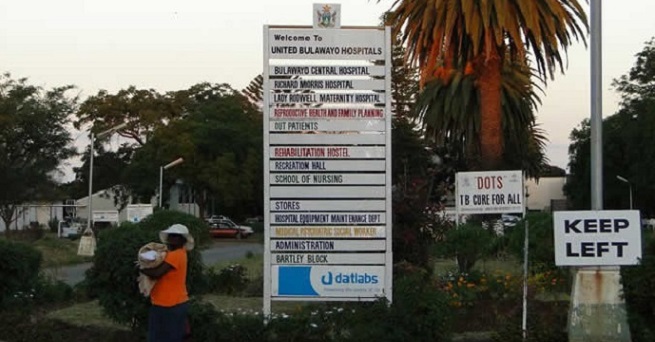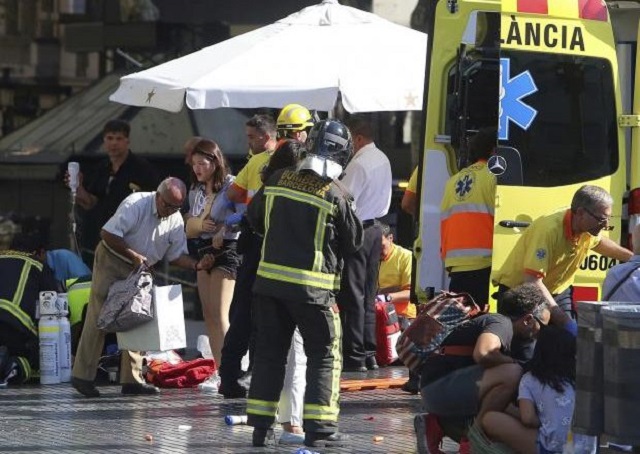We should give credit where it’s due

Leenox Lizwi Mhlanga
I HAVE been holding back on writing about this for some time. Let me give a bit of context. My late brother Vumani passed away at a government hospital.
So, did my mother-in-law, father-in-law, some uncles, a host of relatives, friends, the list is endless.
I am sure you have your share of such experiences. This is in no way a blanket verdict that going to a government hospital is a death sentence. We are all destined to die at some point, and it’s only a matter of time that differentiates us. That is our fate, sadly.
The whole experience of losing a loved one is gut wrenching. It’s emotional to no end. Therefore, it shouldn’t surprise anyone when people start looking for something or someone to blame.
Unfortunately, hospital staff and authorities find themselves at the wrong end of the proverbial beating stick. That is expected, though the differing circumstances find the jury of public opinion on sick leave most of the time.
When Vumani was admitted at United Bulawayo Hospitals (otherwise known as Central or UBH), my mother was not too happy. It had little to do with any trepidation about the soiled reputation of public health institutions. She is a retired senior nursing matron of repute by the way.
But rather, she sincerely felt that we didn’t give her Pentecostal faith a chance to perform the miracles it is renowned for. When my brother sadly passed away, MaSibanda singled out those of us who took him there as partly responsible.
Who can blame her? Government hospitals carry the notorious tag of being the whipping boys (and girls) of the public service. Throw in a couple of private ones into that sordid stew as well. And yet if the truth be told, they do not entirely deserve the brickbats hurled at them.
My firm belief is that public health institutions do a very bad job of managing their reputations. They have allowed the negatives to drown out the positives.
They have sat back as the narrative about them is driven by disgruntled patients and relatives. That, at least, for us working in public relations, is a travesty.
Let me go back to my recent experience, before proffering some solutions. My mother recently fell seriously ill, and found herself admitted at UBH. That is after a circuitous route, via her personal physician, Galen House and Mater Dei. I won’t dwell on what happened at Mater Dei, let’s just say it was divine intervention that landed her at “Central.” For our pockets, that is.
As I was directing operations from Harare where I make money (if you call my work that), I was glad that we were not going to part with hundreds of dollars, if not in vain. At UBH, she would receive “free” treatment because of her advanced age. Tick that as positive number one.
When I arrived at her bedside, 48 anxious hours later, she had significantly recovered. This was thanks to an injection that she got at Mater Dei, and the medical care and treatment of staff at UBH. To tell the truth and shame the devil, I expected the worst.
My mother was to spend two weeks there, but I must mention here that she was left in shock. She was positively shocked by the high level of cleanliness in her ward. She said it far eclipsed that of her hey days as matron at Mpilo Central Hospital.
She was also amazed at the level of attention by the doctors and nurses there. UBH being part of the teaching cohort for students from the National University of Science and Technology Medical School, meant that there was rarely a time when there wasn’t an experienced physician within shouting range.
I will make special mention of Drs Noko, Gwinji and their junior colleagues. As I made a point of being present most of the mornings my mother was there, their daily briefings on her progress were incomparable to my previous experience.
Her doctors were meticulous, giving every relative present detailed diagnosis while offering alternatives. It was the same with the nurses and other staff who I must add, go through a lot as they care for patients in all sorts of conditions.
My mother recovered quickly, but not enough to be discharged, as a host of tests were ordered for her. Shock number two, was the comment she made about those tests conducted in-house. She positively remarked about the equipment that she saw and much more.
Granted that she is a hard person to impress, and being a former nurse herself, one was sure to expect a lot worse coming from her. I admit that she gave her carers a tough time, yet she would pause to tell us about the doctor who literally spent the whole of her first night by her bedside. I have been dutifully instructed to look for him and personally offer our sincere thanks, whoever he is.
Apart from the clean wards, the bedding was spotless, with warm puma blankets provided to ward off the bitter July chill. The nurses were helpful and cheerful, even though they occasionally got an earful from former Matron Mhlanga. It was a refreshing and reassuring experience for us relatives. We got the confidence boost that we needed in that our mother was in good hands.
Which brings me to my closing point of caution. Government remains with the responsibility of ensuring that hospital staff are well motivated. They should provide for the needs that make them perform their duties adequately. They should also avail drugs and other ancillaries that relatives are made to purchase elsewhere.
Hospital authorities, through their public relations officers, should work hard to dispel peoples’ fears. Particularly, where praise for good service is deserved. They should learn how to blow their trumpets and endeavour to correct the wrongs. There is a lot of goodwill out there, especially where staff go out of their way of to provide excellence under trying conditions.
Sometimes it’s the little things that matter. But if the truth be told, UBH and probably other health institutions deserve better in terms of us showing appreciation. They deserve assistance from those endowed enough to make the hospital experience a memorable one.











Comments